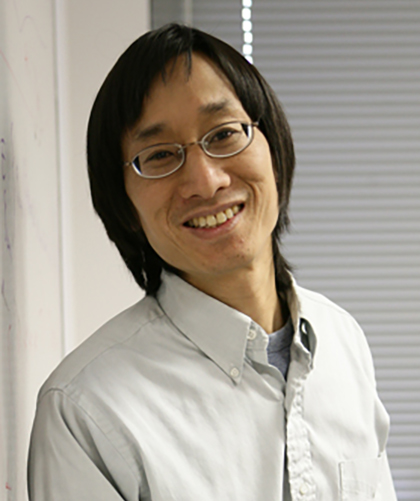 Smith Chair of Management Science Michael Fu at the University of Maryland’s Robert H. Smith School of Business is co-PI for a new four-year National Science Foundation grant focused on understanding how kidney trade networks work and how they evolve—critical for developing ways to curtail illegal transplants worldwide.
Smith Chair of Management Science Michael Fu at the University of Maryland’s Robert H. Smith School of Business is co-PI for a new four-year National Science Foundation grant focused on understanding how kidney trade networks work and how they evolve—critical for developing ways to curtail illegal transplants worldwide.
Organ trafficking is a lesser known yet insidious form of human trafficking that predominantly preys upon the poor and vulnerable, whose desperate conditions are illegally exploited for quick profit, often leaving them with severely debilitated health. Kidneys are by far the most traded organ, exceeding 10,000 kidneys illegally traded annually. Refugees, who are approached to sell their kidneys in exchange for passage to other countries, are the most likely “donors.”
The transnational kidney trade is complex, involving multiple nations and entities. It typically consists of relatively young and healthy, but poor, sellers/“donors”; affluent but desperate buyers; transplant service providers such as surgeons, hospitals, and labs; brokers who often provide similar services for other illicit trades; and transnational crime networks that handle various types of illegal transactions across countries. Combating organ trafficking has been compared to playing “whack-a-mole”: controlling trafficking in one country inevitably raises the prevalence of trafficking in other countries.
Fu has a joint appointment with Institute for Systems Research and an affiliate appointment with the Department of Electrical and Computer Engineering, both in UMD’s A. James Clark School of Engineering. He is working on the project, D-ISN: Evolution of Global Illicit Kidney Trade Networks: Identification, Reconstruction, and Disruption, with George Mason University (GMU) Professor of Public Policy Naoru Koizumi (the principal investigator) and two other co-PIs: University of Louisville Associate Professor of Industrial Engineering Monica Gentili and GMU Systems Engineering and Operations Research Assistant Professor Hadi El-Amine.
The total project funding is close to $1M, with the University of Maryland’s portion expected to be about $244K.
The project goal is to produce a general framework that models and predicts the evolution of transnational kidney trade networks and identifies their common patterns and mechanisms. This framework will enable researchers to explore effective disruption strategies.
The framework will be developed using a multidisciplinary set of methods that include novel estimation procedures based on inverse optimization, dynamic link prediction models for handling unobserved activity in the networks, and stochastic simulation models to address the numerous sources of uncertainty and allow the testing of potential intervention strategies for disruption of future network evolution. These methods will be informed by data obtained from various sources including open and dark web, online news articles across countries, and publicly available world statistics from international organizations. A collaboration with experts in organ trafficking and transplant tourism will allow the project team to fine-tune the research for real-world implementation of the recommended strategies.
In his portion of the research, Fu will be developing simulation optimization algorithms that can handle the uncertain features and complex dynamic evolution of the networks. The resulting models will enable testing of various optimal intervention strategies to disrupt network growth. He also will be considering types of interventions that can effectively curtail the course of network evolution and will research how the framework the researchers are developing could be extended to other organ trafficking networks and illicit supply networks in general.
Fu is currently working with many of the same researchers on another NSF kidney-related project, to improve transplant access and decision-making in a way that helps overcome the problems of incompatibilities in legal donation systems.
“I am excited about continuing my collaboration with this team of researchers on another project addressing a timely and pressing societal problem,” Fu says. “Illegal organ trafficking is an international tragedy exacerbated by the increasing number of refugees worldwide.”
Towards the end of the project, the researchers plan to disseminate their findings to practitioners engaged in combatting illegal human trafficking. They also hope to produce a podcast series and YouTube videos to share their findings with a wider audience.
Media Contact
Greg Muraski
Media Relations Manager
301-405-5283
301-892-0973 Mobile
gmuraski@umd.edu
About the University of Maryland's Robert H. Smith School of Business
The Robert H. Smith School of Business is an internationally recognized leader in management education and research. One of 12 colleges and schools at the University of Maryland, College Park, the Smith School offers undergraduate, full-time and flex MBA, executive MBA, online MBA, business master’s, PhD and executive education programs, as well as outreach services to the corporate community. The school offers its degree, custom and certification programs in learning locations in North America and Asia.